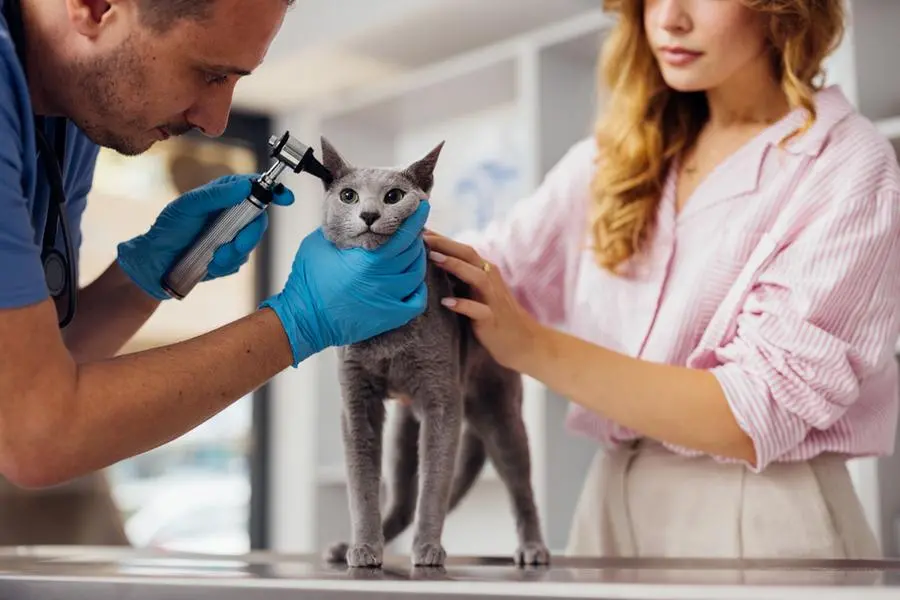PHOTO
GOVERNMENT veterinary services for poultry and livestock, which were suspended two decades ago, could be resumed following a proposal unanimously approved during a Northern Municipal Council meeting yesterday.In 2004, the Municipalities Affairs and Agriculture Ministry had stopped offering general vaccinations, medicines and grooming services for animals at the veterinary centre in Budaiya.
However, it continued providing free vaccinations to all livestock and poultry breeders against infectious diseases, including foot-and-mouth disease and bronchitis and rhinitis of cows.The GDN reported that 10,353 animals received vaccinations against these diseases from January to June last year.“Government veterinary services play a crucial role in supporting the agricultural sector, particularly in providing essential healthcare to livestock,” said council vice-chairwoman Zaina Jassim, who spearheaded the proposal.“When these services were halted for privatisation, the effects were far-reaching, impacting small-scale farmers and the agricultural economy,” she added.“To address this, resuming government veterinary services with the introduction of minimal fees could be a viable solution.“This approach aims to restore access to affordable animal healthcare while ensuring sustainability and quality of services.”Ms Jassim pointed out that many governments have provided veterinary services at little or no cost for decades, recognising the public good of maintaining healthy livestock populations.However, she added that in recent years, some countries have opted to privatise these services, citing the need for cost reduction and improved service efficiency.
“This shift often results in the suspension of government veterinary programmes, leaving livestock owners, especially smallholder farmers, with limited access to affordable animal healthcare,” said Ms Jassim.“With limited access to affordable care, diseases can spread more easily among livestock, impacting productivity and leading to higher mortality rates.“Small-scale farmers are struggling to afford private veterinary services, leading to untreated animal health issues and economic loss.“Some livestock diseases can spread to humans, increasing public health risks when veterinary oversight is reduced.”
Ms Jassim said reintroducing government veterinary services with a minimal fee structure presents a balanced approach. “The primary goal is to make essential veterinary care accessible to all farmers while ensuring that the service is sustainable,” she explained.“Setting minimal fees allows farmers to access necessary veterinary services at a low cost, reducing the financial strain on smallholders.
“The fees would be designed to cover only a portion of the service cost, keeping the burden on farmers manageable.”She added that minimal fees can help recover some operational costs, allowing the government to maintain the quality of services.“This ensures that the programme is not a significant drain on public funds while remaining accessible.“The introduction of fees can help prioritise service quality and efficiency."
With even a small payment, farmers may have higher expectations for the quality of care, pushing service providers to improve their standards.”Ms Jassim stressed that when services are completely free, there is a risk of overuse or misuse. “Minimal fees can encourage farmers to use veterinary services responsibly, seeking care when genuinely needed and making use of preventive measures to avoid frequent interventions.“The fees should be set at a level that is affordable for small-scale and resource-poor farmers. A tiered fee structure based on farm size or income could ensure that the poorest farmers receive further concessions or exemptions.”
Ms Jassim said to make a significant impact services should be comprehensive, including disease diagnosis, treatment and emergency care.“Access to affordable veterinary services can help reduce the incidence of diseases, leading to better livestock health and higher productivity,” she said.“Affordable healthcare for animals can reduce the financial losses associated with untreated diseases, providing economic stability to farmers.“By controlling animal diseases, especially zoonotic diseases, the programme can help protect public health.“Government support can boost employment and training opportunities in the veterinary sector, enhancing the overall healthcare infrastructure for livestock.”The proposal has been forwarded to Municipalities Affairs and Agriculture Minister Wael Al Mubarak for review.mohammed@gdnmedia.bh
Copyright 2022 Al Hilal Publishing and Marketing Group Provided by SyndiGate Media Inc. (Syndigate.info).





















